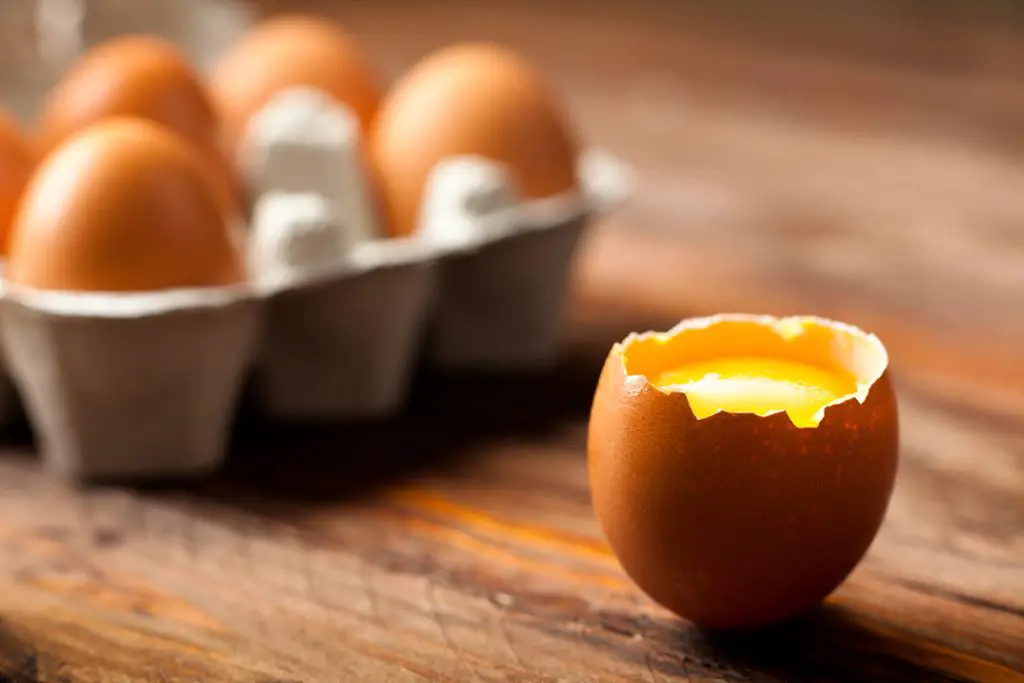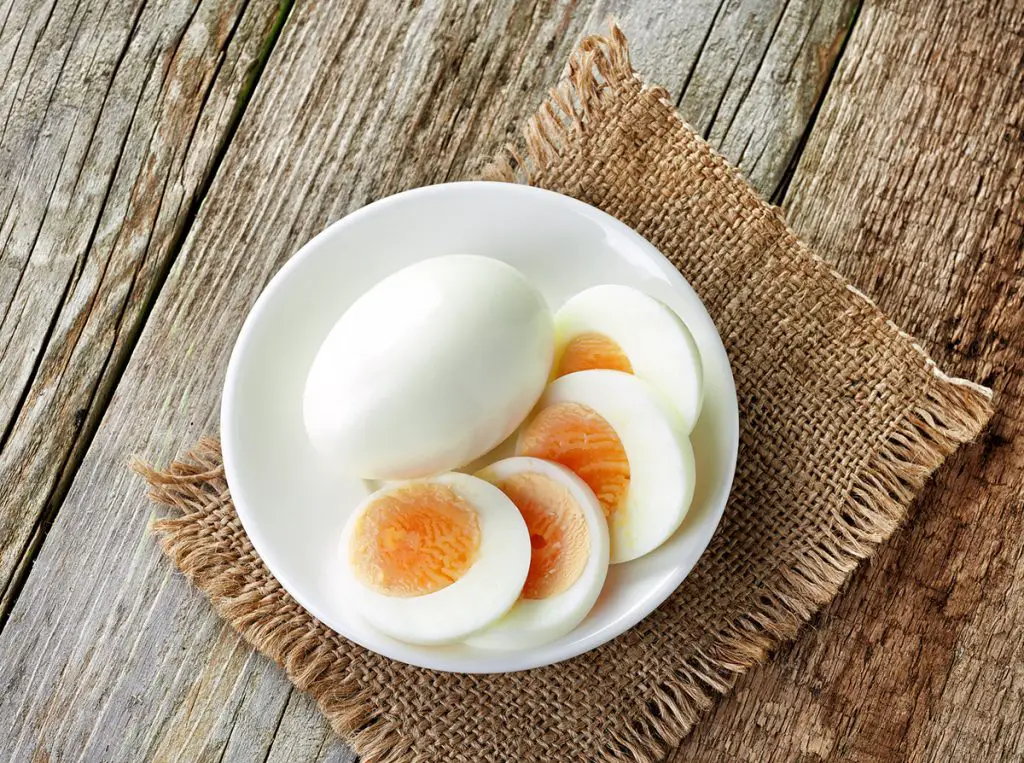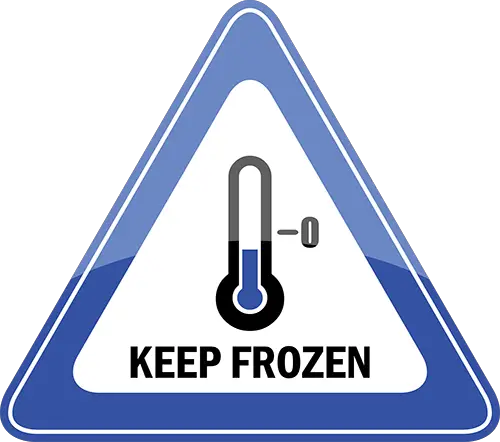The Do’s & Don’ts of Freezing Raw Eggs (Explained)
We’ve all been there. We see a good deal on eggs at the grocery store and are tempted to save some money by stocking up. Many foods easily stay fresh when stored in the freezer, but what about eggs? Can you freeze raw eggs?
You can freeze raw eggs to preserve them for up to a year, yet they can’t be frozen inside their shells. Raw eggs must be cracked open and have the white and yolk separated and frozen individually. Frozen eggs can be thawed in the refrigerator or under cold, running water before cooking.
In this article, I will explain the dos and don’ts of freezing raw eggs, as well as exactly how to freeze them and how to cook them once they’ve been frozen and thawed.
The 4 Benefits of Freezing Raw Eggs
Freezing eggs is an excellent idea if you are constantly throwing away expired eggs, or if you are simply wanting to stock up. You can later thaw these eggs to eat plain or use in your favorite recipes as needed.

Here are the four benefits of freezing raw eggs:
- Reduce food waste. According to Feeding America, about 108 billion pounds of food is wasted each year in the United States. This is around 40% of the country’s food in total! Freezing eggs is a great way to prevent some of that food from going bad and needing to be thrown away.
- Save money. When you freeze eggs, you won’t have to worry about them going bad and therefore won’t have to spend additional money getting more eggs everytime you need some. Freezing eggs also allows you to stock up when the grocery store is running a a sale.
- Always have eggs on hand. There’s nothing worse than going to make your favorite recipe and realizing you don’t have any eggs in the fridge. With frozen eggs, you’ll never have to make another emergency trip to the grocery store for a carton of eggs.
- Stock up on different types of eggs. Because you freeze yolks, whites, and whole eggs separately, you no longer have to buy a carton of egg whites only to let it expire in your fridge. Freezing yolks and whites separately allow you to use each part of the egg as needed.
How To Freeze Eggs
According to the Food and Drug Administration, you shouldn’t freeze eggs in the shell. This can cause them to crack prematurely or develop an uneven texture. You should instead remove the yolk and whites from the shell before freezing.
After preparing raw eggs properly for storage, they’ll last up to one year in the freezer.
It’s also important to note that different types of eggs require different freezing methods. Here are the most common methods for each type:
Freezing Whole Eggs
- Crack open the desired number of eggs into a large bowl and whisk together. It’s important not to introduce too much air into the mixture while whisking.
- Pour the mixture into an ice cube tray. You can also use another container, such as a muffin tin, but ice cube trays are the best option. Each ice cube tray allows for the perfect serving. If you don’t have any trays, I recommend this set of VEHHE Reusable Ice Cube Trays(available on Amazon.com). They’re made from an odorless, food-safe silicone that allows for easy release, perfect for freezing soft foods.
- Place the trays in the freezer. Allow the eggs to sit in the freezer overnight. Once the eggs are completely frozen, you can remove them from the trays and store them in a Ziploc bag.

Freezing Egg Whites
- Crack and separate your eggs. It’s important to make sure your whites are completely separated from the yolks. You can do this manually or with a tool such as the Arrozon Egg Separator (available on Amazon.com). The spiral design allows for instant separation, and it’s dishwasher safe!
- Pour your egg whites into an ice cube tray and place them in the freezer. The egg whites can either be removed from the container or kept in the tray. Tip: They’ll last longer if you place them in an airtight storage bag or container. You may label the container to help you remember how long they have been frozen.
Freezing Egg Yolks
- Separate the yolks from the whites. You can do this using the same methods as above. Be careful not to break the yolks, as this can cause your whites and yolks to mix.
- Whisk the yolks together. Use a fork or a whisk to make sure each yolk is completely broken apart.
- Add salt or sugar to the yolks. Because the consistency is thicker, egg yolks will gel in their original form. Adding a bit of salt (½ tsp.) or sugar (1-2 tbsp.) for each 240ml (8.12 fl oz) of raw egg will prevent this from happening.
- Pour into an ice cube tray and place in the freezer. Again, your yolks can be removed after completely frozen and placed into a Ziploc bag until you’re ready to use them.
Freezing Hard-Boiled Eggs
While this method is possible, keep in mind that it’s not ideal to freeze hard-boiled eggs. When you freeze this type of egg, you run the risk of an unpleasant texture change.
- Boil your eggs. To learn how to perfectly boil your eggs, check out this quick video from Tasty:
- Peel the shells off of the eggs. Peeling the shells will save you time when you’re ready to defrost them. This will also prevent the shell from sticking to your egg.
- Place the eggs in a freezer-safe container. Make sure the container is completely sealed in order to prevent freezer burn.
How To Thaw and Cook Eggs After Freezing
It’s important to not cook your eggs while still frozen. Instead, when you’re ready to use them, simply take them out of the freezer and put them in the refrigerator to thaw.

It’s ideal to let the eggs sit in the refrigerator overnight, but if you need to speed up this process, you can run cold water over the container.
Once the eggs are thawed, use them immediately. You cannot refreeze eggs once they have been thawed. Frozen and thawed eggs can be used just like you would a fresh egg and the taste and texture will be identical.
Final Thoughts
Freezing eggs is a great way to save time and money while also allowing you to do your part in preventing food waste. So, next time you see that deal on eggs at the grocery store, take advantage of it.






